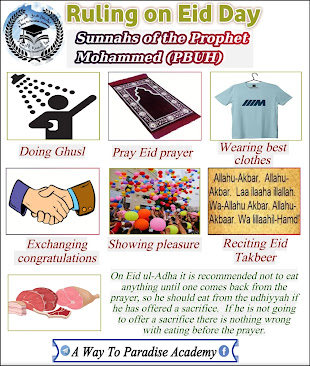The mahram of women
The Mahram of women
A mahram of women is a person whom she is never permitted to marry.
👉🏻because of blood ties, breastfeeding or ties through marriage, such as her father, son, or brother...
her paternal and maternal uncles, her brother, brother’s son and sister’s son), or because because of radaa’ah or breastfeeding (such as the brother and husband of the woman who breastfed her),
or because they are related by marriage (such as the mother’s husband, the husband’s father, grandfather, etc., and the husband’s son, grandson, etc.).
More details on this subject are given below:⤵️
Mahrams by ties of blood
These are the ones mentioned in Soorat al-Noor, where Allaah says (interpretation of the meaning):
“… and not to reveal their adornment except to their husbands, or their fathers, or their husband’s fathers, or their sons, or their husband’s sons, or their brothers or their brother’s sons, or their sister’s sons…” [al-Noor 24:31].
The mufassireen said: the woman’s male mahrams by ties of blood, as stated clearly in this aayah or inferred by it are as follows:
1- the woman’s forefathers, no matter how far back the line of ascent goes through her father and her mother, such as her father’s forefathers and her mother’s forefathers. As for her husband’s forefathers, they are her mahrams by marriage, as we shall see below.
2- her sons, which includes her children’s children, no matter how the line of descent goes and whether they are descended from males or females, such as her sons’ sons and her daughters’ sons. As for her “husband’s sons” mentioned in the aayah, these are the husband’s sons from other wives, and these are her mahrams by marriage, not by blood, as we shall see below.
3- her brothers, whether they are her brothers through both the mother and father, or through the father only or the mother only.
4- the children of her siblings, whether they are descended through the males or females, such as the sons of her sister’s daughters.
5- paternal uncles and maternal uncles. They are mahrams by blood even though they are not mentioned in the aayah, because they are like parents and are regarded by people as having the same status as parents, and a paternal uncle may be called a father.
.........................




تعليقات
إرسال تعليق